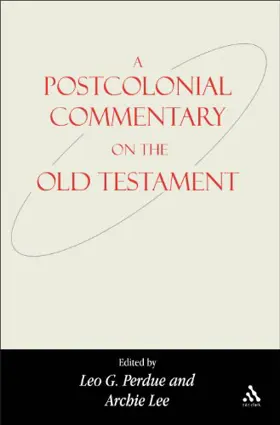

Postcolonial Commentary on the Old Testament
One of the major forces in postcolonialism is the recapturing of tradition and the retelling of history. The replacement of the metanarratives of the imperialist countries requires the return to indigenous traditions and the formulation of national histories and narratives. Postcolonial scholars recognise that western biblical scholars have used western tools to shape the colonial "other." As Edward Said noted, this often has been done to force the Asian peoples into a falsely construed, western myth of the "Orient" and the "Oriental" as seductive, passionate, mysterious, irrational, alluring but dangerous. Postcolonialist scholars seek to dislodge the major metanarratives of the colonizing and neocolonizing West. They engage in a direct confrontation with the system of thought and the values of the West in order to achieve emancipation from all dominant, external structures.
Postcolonialists re-read classic texts in order either to find their own place within them or to point to the questionable assumptions that the dominant cultures produce in interpreting these narratives (this includes the Bible). This requires the detection of the prejudices of the world views that produced these interpretations and then the necessity to subvert them.
Postcolonialists also construct their own narratives of meanings free of extraneous myths that seek to portray the world in ways that will support the self-interests of those who construct them. This has led to local interpretation of texts that reject the hegemony of western interpretations of the Bible and theology. Thus, postcolonialism will be used to gain insight into these two areas: the social history and worldviews of the cultures of the Bible and the engagement of these with the interests of marginalized peoples who speak largely from the Third World.
A Postcolonial Commentary on the Old Testament consists of three parts: Introduction (a survey of seminal postcolonial interpretations in the Old Testament in non-Western and Western Biblical interpretation, and an overview of Israel's move from state to empire to colony); Modes of Postcolonial Discourse that focuses on the major theorists who have shaped this approach to interpreting culture and literature (Fanon, Senghor, Said, Spivak, Bhabha, Sugirtharajah, Kwok Pui-lan, and Fernando Segovia); and Postcolonial Interpretations of Old Testament texts. Thus the volume moves from a survey of the field of Old Testament postcolonial texts, to an examination of leading theorists in postcolonialism, to postcolonial interpretations of significant Old Testament texts.
This volume is designed to demonstrate how historical criticism, postmodernism, and the important concerns of postcolonial readings may be integrated to obtain an informed explanation of the Hebrew Bible and the writings of Early Judaism. Old Testament literature will thereby be open to a new understanding through the lens of postcolonialism. Israel and Early Judaism participated in the experiences of colonialism, imperialism, postcolonialism, and even neo-imperialism especially during the Persian and Graeco-Roman periods. Many Jews also migrated into various regions in becoming what are called the communities of the Diaspora. This collection will give specificity to the variety of postcolonial views and insights by providing examples of how this lens provides insight into the nature and meaning of Old Testament texts.